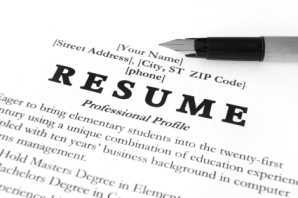Even if people keep their resume up to date with their latest jobs, they often plug that new information into an old format. Here’s how to tell if your resume is dated and what to do about it.
Many people aren’t great at keeping their resumes up to date. Even if they remember to add new accomplishments or jobs, they still just plug the new information into the old resume. Here’s why your old resume may need tweaking and what you should keep in mind when you’re doing that tweaking.
1. You still have an objective statement. Some people swear by the objective statement, and a broad, descriptive statement is good as an introduction. But what you don’t want is the old “Seeking a position that utilizes my outstanding project management skills.” I hate to break it to you, but hiring managers couldn’t possibly care less about what you’re looking for. The exercise is all about what you can do for the company you’re applying to. Instead, use a profile that outlines what you’ve accomplished and in what ways you can bring value to the company.
2. Your resume looks like it was typed on a Smith-Corona. Remember back when left-alignment was the only formatting option you had? Now, apps like Microsoft Word let you do everything but make the words dance to music. I’m not suggesting you justify your margins or center-align everything (please don’t do that!), but you can let go of the old Company name…tab…Position held…tab…..dates worked mentality. (While we’re on the subject, I suggest you put things in order of their importance — list your title first, add a comma, and then put the company name. If you want to add dates, you can do that and then right-align that portion.)
3. You consider yourself “hard working” or a “good communicator.” Two problems with this: One, you’re talking about yourself so you’re a little subjective. How much weight do you think that will carry? Two, unless you have some way to prove this (for example, “I conducted all end-user training for the company” can replace “good communicator”), there’s really no reason to even mention it.
4. You offer references upon request. Honestly, a savvy employer will have googled the heck out of you already, so there may be no need for references. Also, it’s understood that if a reference is needed, the employer will ask for it and you’ll provide it. Save that part of your resume real estate for something important.
By Toni Bowers











